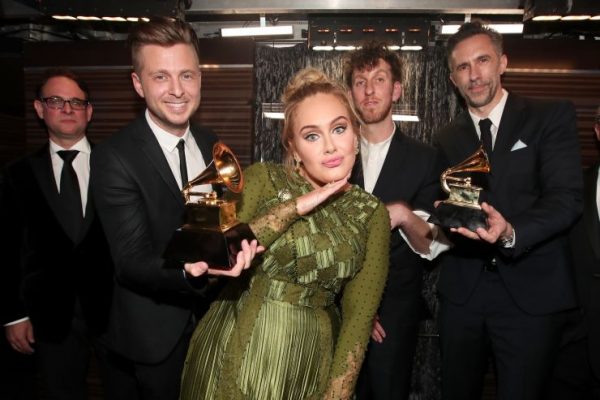Adele Got Real About Race at the Grammy’s
February 23, 2017
Needless to say, the Grammy’s were amazing this year. The artists, namely Adele and Beyoncé, performed flawlessly. In fact, they killed it. To say that Adele did George Michael’s song, Fastlove, justice would be an understatement. And, when she teared up at the end, I bet that the whole world was crying tears of awe and joy with her. I certainly was.
As beautiful as her and the other artists’ performances were, the most awe-inspiring act of the night was her acceptance speech upon winning the Grammy Award for Album of the Year: “I can’t possibly accept this award. And I’m very humbled and I’m very grateful and gracious, but my artist of my life is Beyoncé.”
Yes, you read that right: she effectively “Kanye’d” herself. But, unlike what Kanye West did to Taylor Swift, Adele wasn’t just being belligerent and kissing up to Beyoncé. She was making a brutally honest statement about race relations in the world.
She went on to say that Beyoncé’s most recent album, “Lemonade,” was monumental (which it truly is) and that Beyoncé empowers and encourages her and her black friends to stand up for themselves.
I wonder if she understands the power behind her speech.
She didn’t go into a rant about how black people are treated badly in the country. But, she didn’t need to. The fact that she had to specify that her black friends, in particular, felt empowered to stand up for themselves is indicative of the fact that our society puts them in a position of constantly needing to do so.
Is that necessarily news? Not at all. But, that is exactly why we can never forget it. Especially since we live in a world where people such as Sandra Bland, Eric Garner, Mike Brown and Trayvon Martin have been subject to police brutality, and killed for standing up for their rights, no matter how respectfully they did so.
Race is an uncomfortable subject for many because of all the historical implications that come with it. For that reason, it is often considered a taboo subject to discuss among mixed company. But, we can’t shy away from talking about a relevant issue simply because it makes us uncomfortable.
I applaud Adele for being unafraid to speak so openly about race. Her acceptance speech was not just about whose music people should like better. It was about calling issues as they are, and coming together to acknowledge them.
The best part about Adele’s acceptance (or technically, rejection) speech is that it came from a place of frankness and humility, rather than from a savior complex, or a desire for positive publicity.
Of course, nobody just went up to her and said, “Oh, you’re right!” and snatched the Grammy out of her hands in order to give it to Beyoncé. But, it is often said that the first step to solving a problem is to admit there is, in fact, a problem. If we hope to improve race relations, then we must never become complacent about challenging the system that destroyed them.
Adele’s speech was a great example of that.









